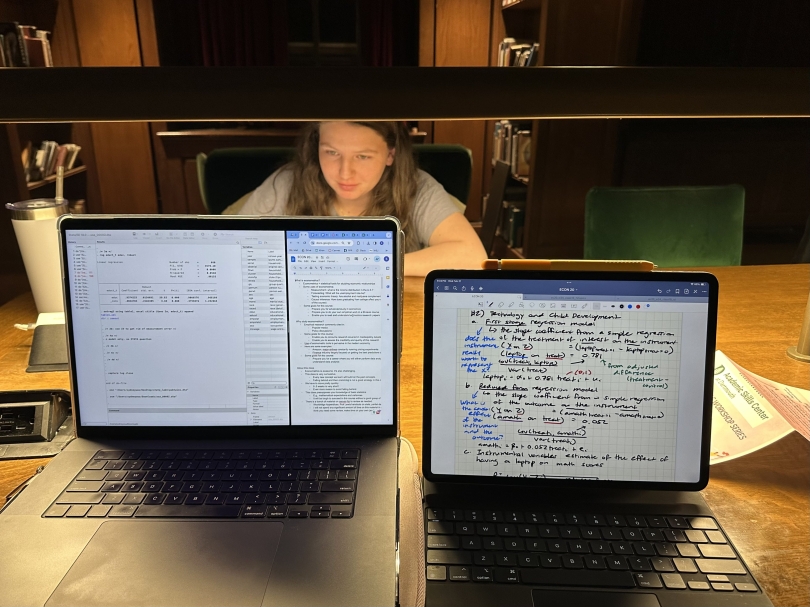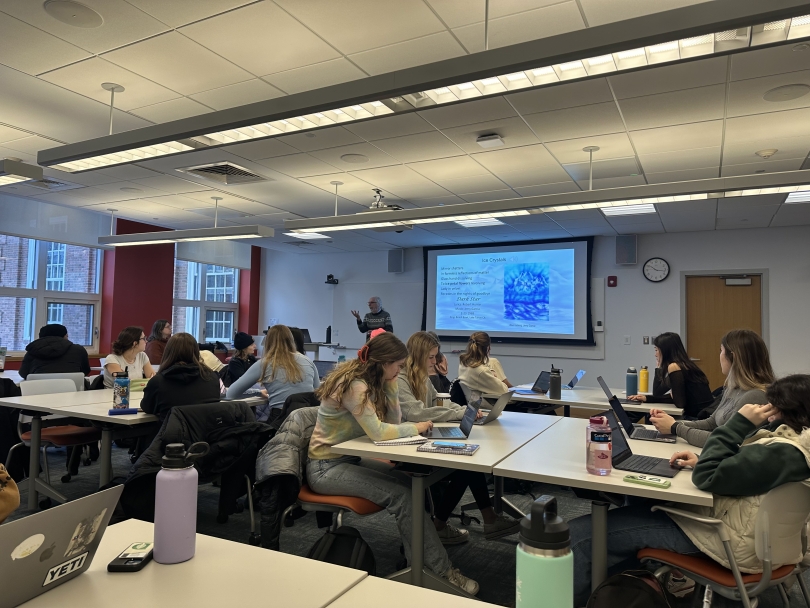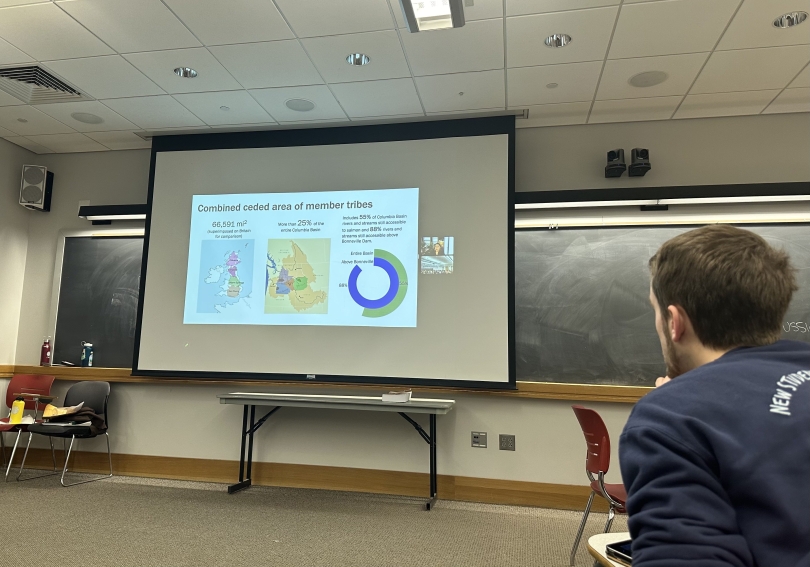
An Economics and Environmental Studies Double Major's Winter Class Schedule
As I write this post, working by a café window while the snow tumbles outside makes me feel like I'm inside a snow globe. Many Dartmouth students pick up a more rigorous course load during the winter term as it is the perfect time to hunker down in the cozy library and focus on academics. I thought it would be the perfect time to knock out my last core Economics class for the major, along with two fun Environmental Studies courses exploring Earth's cold regions and Indigenous Environmental Studies.

ECON 20: Econometrics
ECON 20 is widely known among Economics majors as one of the most challenging courses in the major here at Dartmouth, but it's also been one of the most practical and rewarding. This class takes a deep dive into statistical analyses using the powerful software Stata, spanning multiple regression and instrumental variables with a strong emphasis on mastering causal inference tools. My friend Elizabeth '24 and I used Dartmouth's Take Your Professors Out to Lunch program to take Professor Daniel Fetter to lunch at Pine Restaurant for free, learning more about his research, life outside the classroom, and what drew him to pursue academia. Professor Fetter and the course's two teaching assistants (TAs) are readily available to guide us through conceptual and data exercises, creating a learning environment where asking questions is not just welcomed but encouraged. I am also super grateful for group tutoring with Dartmouth's Academic Skills Center, a free program where students who previously performed well in the course host drop-in, small-group office hours three days a week as their part-time job. Next term, I will enroll in my culminating experience for the Economics major (ECON 64: Topics in Development Economics), so the skills I learn in ECON 20 will be extremely useful when writing my own major research paper!

ENVS 15: Environmental Issues of the Earth's Cold Regions (AKA: Pole to Pole)
If you have ever wondered about how to conduct ethical community-based Arctic research or why the ocean global conveyor belt is so important, this is the course for you. Winter is the most fitting term to take this very popular Environmental Studies course about the Earth's coldest regions, and Pole to Pole also counts as the fifth of six classes in my International Studies minor. The course consists primarily of '27s (first-years) and '24s (seniors), though students span all class years. We also have a wonderful graduate student TA Sarah who helps grade our assignments and host office hours. Professor Ross Virginia is a Deadhead (loyal fan of the American rock band The Grateful Dead) and always begins class with a song that captures some element of the day's lecture topics. The assignments have been fun, engaging, and memorable, from transcribing the Lorne Knight Diary to writing a blog post reflecting on the music selection of diverse peoples of the Arctic. The open-book midterm was a non-stressful learning opportunity for us to demonstrate our ability to synthesize polar science concepts like thermohaline circulation and Bond cycles. We also have the chance to interact with primary sources from the Rauner Library Special Collections that are over a hundred years old!

NAS 18/ENVS 18: Indigenous Environmental Studies
This cross-listed course in the Environmental Studies and Native American and Indigenous Studies departments examines Indigenous rights, land-language linkages, reciprocity, self-determination, and much more. I am currently collaborating with four of my classmates for our creative group assignment, where we are co-producing a research paper, presentation, and zine on green hydrogen in South Africa. This course satisfies my Systems and Traditions of Thought, Meaning, and Value (TMV) distributive requirement, meeting every Tuesday and Thursday for roughly 2-hour blocks. On Tuesdays, we complete an 8-minute in-class reading reflection and hear a lecture from Professor Meredith Ferguson. On Thursdays, guest lecturers visit our class to discuss their areas of expertise. These speakers have ranged from my Energy Justice Clinic research professor, Dr. Sarah Kelly, to the Executive Director of Columbia River Inter-Tribal Fish Commission, Aja DeCoteau '03. A couple of times, Sarah Parella from the Dartmouth Library Book Arts Workshop joined our class to teach us fun, artistic techniques for the zine component of our creative group project. The second half of every class is devoted to small-group reading discussions where we take turns serving as the week's team leader and pose questions to our peers. I'm so glad I got to take a course in Dartmouth's Native American and Indigenous Studies department before I 'spring' into my final term!
















